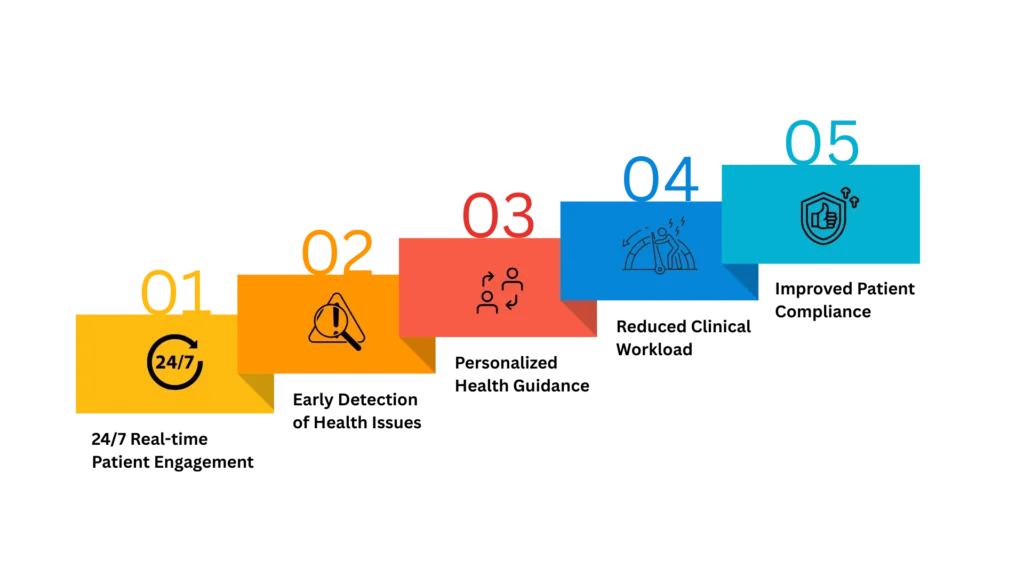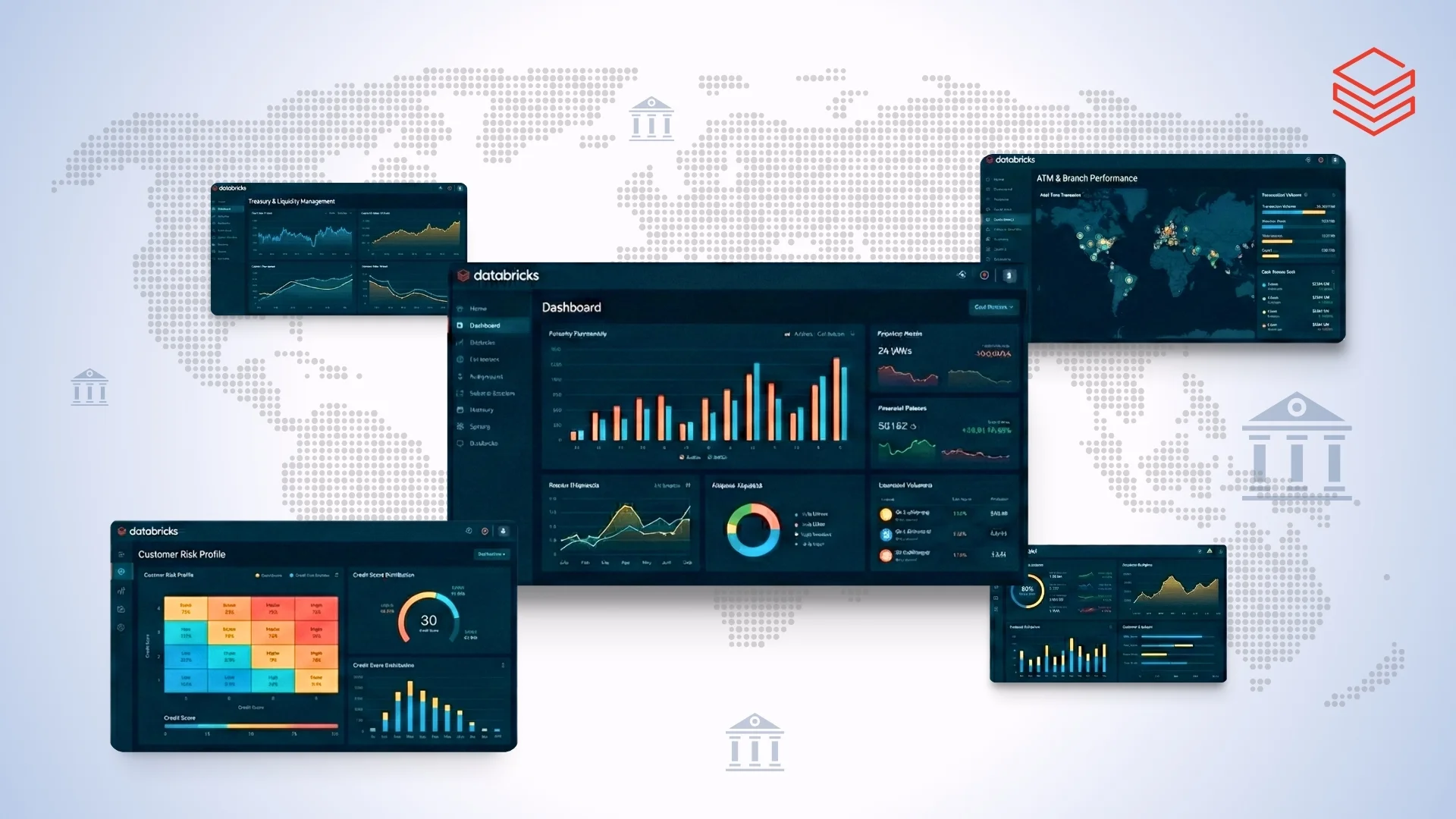The landscape of healthcare delivery has undergone a remarkable transformation with the rise of AI virtual assistants. In an industry where time and cost are critical, the impact of AI on both patients and hospitals is truly unmatched. Traditional healthcare, which depends heavily on human expertise, often grapples with issues like limited data analysis, the potential for human error, and slow administrative processes. These challenges can result in higher costs and delays in diagnoses.
According to Researchnester market report, “Healthcare Virtual Assistants market size was valued at $1.7 Billion in 2025 and is projected to reach $19.5 billion by the end of 2035, rising at a CAGR of 30.1% from FY26-FY35”.
Virtual health assistants are transforming healthcare by enabling patients with instant access to medical advice, appointment scheduling, and medication reminders, enhancing convenience. By automating routine tasks, these assistants help reduce the work of healthcare providers, allowing doctors and nurses to concentrate on more complex aspects of patient care.
These Virtual Health Assistants skilfully blend natural language processing with personalized data analysis to offer real-time, customized medical guidance, effectively connecting patients with their healthcare providers.
What are AI-Powered Virtual Health Assistants?
VHAs are AI-powered digital assistants designed to support patients, healthcare providers, and administrative staff by automating tasks like appointment scheduling, symptom assessment, medication reminders, etc.
Modern VHAs have far more versatile capabilities, functioning as assistants for both patients and health providers. They are digital tools that simulate human-like interaction by leveraging technologies, mainly NLP and Machine Learning, for assistance in key medical applications. Unlike traditional static information systems, VHAs offer interactive, context-aware, and personalized responses, making healthcare more accessible and convenient for patients.
The widespread use of these technologies is particularly beneficial for easing the burden on healthcare workers, enhancing access to services in remote locations, and enhancing preventive care efforts.
One of their defining traits is their continual evolution, driven by their vast potential. Early platforms initially offered pre-programmed responses, lacking both understanding and adaptability. Through technological improvements, modern VHAs are powered by advanced AI, including deep learning models, which enable them to process and interpret natural language, learn from interactions, and provide more sophisticated and personalized responses
Table of Contents
Key Benefits of AI Virtual Health Assistants

From streamlining hospital administration to direct health monitoring, VHAs represent a transformative innovation in healthcare by combining automation, personalization, and accessibility.
- 24/7 Real-time Patient Engagement: AI-Powered Virtual Health Assistants are valuable in providing continuous patient support and dynamic care, regardless of time. Existing systems can accurately respond to patient questions and monitor vital signs.
- Early Detection of Health Issues: AI VHAs are supportive in identifying unusual vital signs via real-time data analytics, alongside providing alerts for potential health risks.
- Personalized Health Guidance: Personalization in AI-VHAs (which store ongoing data, personal history, and patient behaviour) provides relevant evidence-based lifestyle insights.
- Reduced Clinical Workload: VHAs effectively execute routine healthcare tasks such as symptom management, daily check-ins, and report generation, saving extensive time for doctors. For remote monitoring, this improves staff workflows and reduces burnout.
- Improved Patient Compliance: Permanent behaviour changes of patients can be affected by VHA’s support in medication schedules, therapy plans, and follow-up appointments.
AI Virtual Health Assistants Use Cases
Patient Care –
- Symptom Checking and Triage: Chatbots can act as initial screeners, asking a series of questions about symptoms and providing preliminary assessments or recommendations on whether to seek professional medical attention.
- Medication Management and Adherence: VHAs offer personal reminders for medication intake, supply data on drug interactions, and track adherence to prescribed routines.
- Administrative Tasks and Appointment Scheduling: VHA chatbots streamline administrative processes such as appointment bookings, reducing the burden on healthcare staff.
- Automated customer service with 24×7 support: VHAs provide round-the-clock assistance, answering medical questions, offering symptom checks, and providing health advice without the need for human staff.
- Chronic Disease Management: As per a research report in the Journal of Electrical Systems, “Studies have found that VHAs with AI features can help in the care of patients with chronic illnesses such as diabetes and hypertension, hence enhancing the health of the patient and decreasing the costs of care.”
HealthCare Providers –
- Real-Time Feedback: Patients and their doctors get instant insights into health metrics, along with practical recommendations based on the latest readings and trends.
- Data Integration: Information from various devices and applications comes together on a single, unified platform, giving healthcare providers a comprehensive view of each patient’s health status.
- Predictive Analytics: Cutting-edge virtual assistants leverage predictive analytics to spot data patterns and identify potential health risks early on, enabling doctors to take proactive steps before these risks escalate into serious problems.
- Continuous Monitoring: These systems offer continuous 24/7 monitoring, minimizing the need for in-person office visits while ensuring medical assistance is always accessible whenever needed.
The Future
Healthcare management and remote monitoring are advancing towards more intuitive methodologies. AI in virtual assistance is no longer being used for simple background checks or data collection, but is evolving into a partner in personalized, dynamic healthcare.
Forecasting tremendous growth over the next decade, the VHA sector is highly promising.
In the future, it is estimated that VHAs using advanced language models will understand patient questions and provide multilingual support. These systems will specialize in predictive analytics, detecting health problems before they escalate into emergencies. Rather than responding to issues after they occur, future assistants will examine patient data trends to enable early intervention and reduce hospital readmissions.
Conclusion
VHAs have emerged as a next-generation solution bridging the gap between patients and providers, especially in preventive care. They hold significant potential in closing healthcare gaps in rural areas and ensuring equity across communities.
At Sparity, we truly believe that the future of healthcare is all about smart, AI-driven solutions that connect patients with providers in a meaningful way. With our deep knowledge in AI, cloud technology, and data engineering, we assist healthcare organizations in seamlessly integrating Virtual Health Assistants into their systems making care more accessible, scalable, and secure for everyone.
Whether it’s creating NLP-powered assistants, rolling out predictive analytics models, or ensuring smooth data interoperability, Sparity is here to support hospitals, and health-tech innovators in rethinking how care is delivered. Our solutions not only streamline processes but also provide valuable insights that help in making informed decisions.















